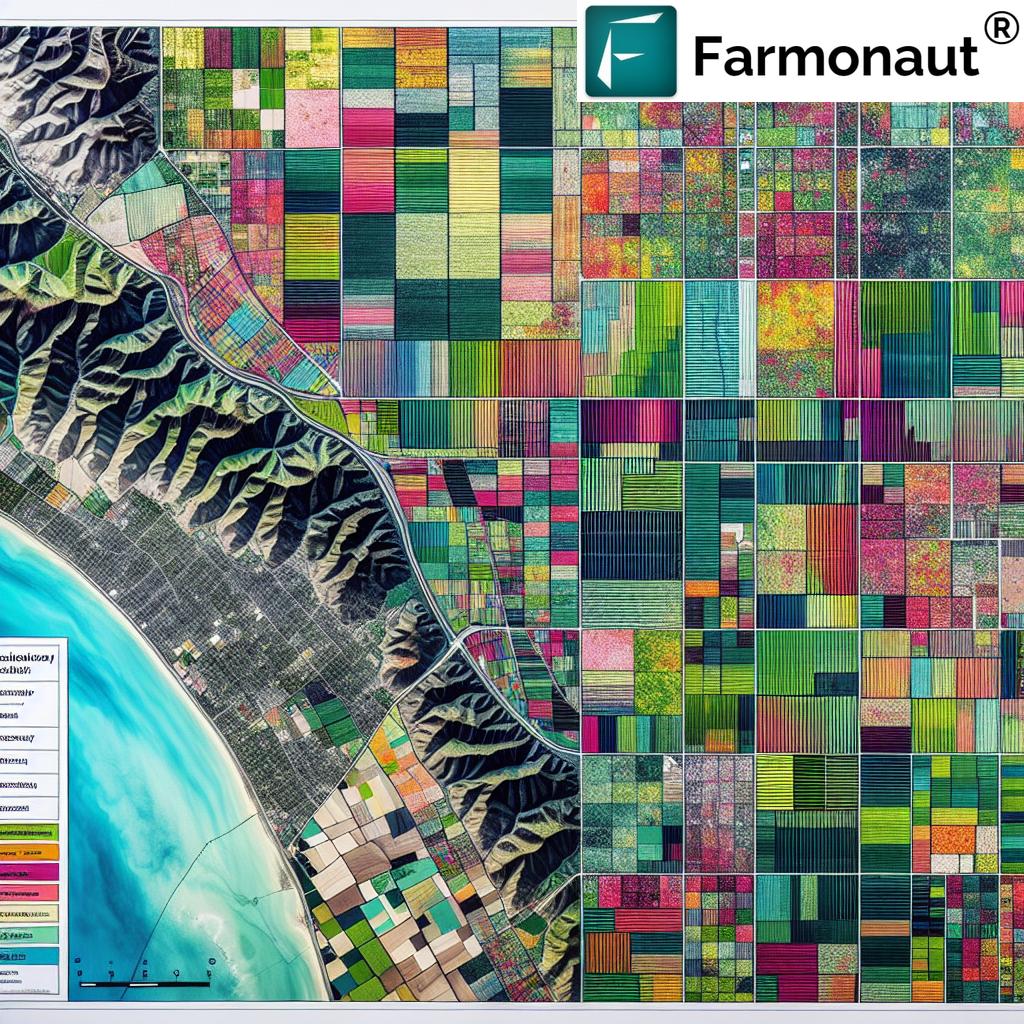Farming Education Programs Wisconsin: 7 Ways to Thrive 2025
“Over 20,000 students enroll annually in Wisconsin’s agriculture and forestry education programs statewide.”
Introduction: The Cornerstone of Wisconsin’s Economy
Farming education programs Wisconsin remain vital as agriculture forms the cornerstone of the state’s economy and culture. Farming is deeply intertwined with the identity of both urban and rural communities across Wisconsin, shaping lives, histories, and the landscape itself. As the agricultural sector evolves with technological advances, environmental concerns, and dynamic market demands, comprehensive farming education—designed for students, adults, and professionals—has never been more important.
In this post, we uncover how farming education programs Wisconsin equip the next generation of farmers, agribusiness professionals, and forestry experts to thrive. From K-12 initiatives, college degree programs, and hands-on internships to adult extension courses and digital platforms, Wisconsin boasts a broad spectrum of learning opportunities. These programs prepare individuals to sustain and innovate in one of America’s most storied agricultural regions while ensuring that Wisconsin farming remains adaptable, sustainable, and future-ready.
“Wisconsin offers 7 specialized farming education initiatives to boost agricultural literacy and workforce skills by 2025.”
The 7 Ways Wisconsin Farming Education Thrives in 2025
Let’s explore the core farming education programs Wisconsin offers, highlighting seven specialized initiatives expected to shape agricultural learning and rural development for 2025 and beyond:
- K-12 Agricultural Integration Programs: Early introduction to farming and forestry in schools, fostering interest and stewardship.
- University and College Degree Pathways: Advanced learning and research at the University of Wisconsin-Madison and technical colleges, including experiential training.
- Adult Continuing Education: Extension services and certified workshops for upskilling novice and experienced farmers.
- Specialized Dairy, Crop & Forestry Certification: Targeted programs focusing on Wisconsin’s leading agricultural sectors using state-of-the-art practices and science.
- Digital & Precision Agriculture Innovation: Integration of cutting-edge technology, satellite data, and AI for smarter management.
- Community Engagement & Outreach Events: Hands-on activities, field days, and awareness programs like National Agriculture Education Day Wisconsin.
- Environmental & Sustainability Education: Instruction in sustainable practices, carbon management, and resource stewardship.
These farming education programs encompass a broad spectrum, designed to deliver practical knowledge, scientific understanding, and real-world experience to a diverse audience—students, adult learners, industry professionals, and lifelong enthusiasts.
Farming Education Programs Wisconsin: K-12 Integration
At the first level, Wisconsin schools actively integrate agriculture into their curricula. These K-12 programs are supported by the Wisconsin Department of Public Instruction, local agricultural organizations, and statewide initiatives. The intent is to instill agricultural literacy and stewardship from an early age.
- Classroom Modules: Students receive instruction in soil science, environmental stewardship, plant biology, and animal health—often through creative, hands-on activities.
- AgriScience Fairs & Clubs: These extra-curricular experiences allow young people to engage with farming meaningfully, sparking early career interest.
- Urban & Rural School Partnerships: Connecting urban and rural communities, these programs help bridge the knowledge gap about how food is produced and managed.
This foundation of agricultural education at the primary and secondary level ensures the next generation is aware, skilled, and enthusiastic about future careers in farming, forestry, and agribusiness.
Comparative Summary Table of Wisconsin Farming Education Programs
To support student and public decision-making, we present a comparative table of leading farming education programs in Wisconsin for 2025:
| Program Name | Institution/Organization | Program Focus | Estimated Duration | Estimated Annual Enrollment | Tuition/Fee Range (USD) | Unique Features/Outcomes |
|---|---|---|---|---|---|---|
| K-12 Classroom Agriculture Integration | Wisconsin Public Schools / DPI | Early ag literacy, soil, plant, animal basics | Annual/recurring | 8,000+ | Publicly funded/free | Curriculum-aligned, hands-on; FFA/4-H participation |
| UW-Madison College of Agricultural & Life Sciences | University of Wisconsin-Madison | Agriculture, food systems, environmental science, research | 2–4 years (degree), short courses | 2,500+ | $5,000–$18,000/yr | Research, outreach, internships, global focus |
| Technical College Ag Programs | Wisconsin Technical Colleges (e.g., Fox Valley, Mid-State) | Applied ag sciences, livestock, dairy management, forestry | 1–2 years (Associate/Certificate) | 3,000+ | $2,000–$5,500/yr | Hands-on, technical skills, fieldwork |
| UW Cooperative Extension Programs | UW System Extension Offices | Workshops, certifications, technical assistance | Variable (short to semester) | 5,000+ | Free–$500 | On-farm training, upskilling, community support |
| Specialized Dairy, Row Crop & Forestry Courses | Industry Associations, Tech Colleges, UW | Sector-specific innovation, management, sustainability | 1 day–12 weeks | 800+ | Free–$900 | Certification, career advancement, industry aligned |
| Digital Agriculture & Innovation Workshops | Industry/Technology Providers | Precision ag, satellite data, AI, resource management | Weeks to ongoing | 300+ | $25–$800 | Latest agtech skills, remote/online offered |
Farming Education Programs Madison WI: University of Wisconsin-Madison
The University of Wisconsin-Madison stands as a key hub for farming education programs Madison WI. The College of Agricultural and Life Sciences (CALS) offers degree tracks in agriculture, food science, environmental sustainability, forestry, and agribusiness. These programs ingeniously combine cutting-edge research, classroom instruction, and real-world outreach.
- Experiential Learning: Students benefit from active research plots, internships, and hands-on farm management. The university’s working farms provide real context for modern farming challenges and innovations.
- Interdisciplinary Focus: CALS emphasizes areas such as sustainable practices, soil health management, animal welfare, agricultural economics, and forestry management.
- Community Outreach: Extension and collaborative projects extend university resources beyond Madison, supporting rural communities statewide.
The presence of such a renowned institution in Madison significantly enhances farming education programs Wisconsin, ensuring a flow of knowledge, talent, and innovation into the state’s agricultural sector.
Use Farmonaut via Web, Android, and iOS Apps for real-time crop health, resource management, and satellite-driven farm insights. This empowers farmers and students to apply digital skills learned in Wisconsin’s farming education programs.
API for Developers: Integrate satellite-based weather, crop, and land insights directly into digital ag tools. See Farmonaut’s API and API Documentation.
For plantation and forest management advisory, use the Crop, Plantation, and Forest Advisory Tools.
Forestry Education: Preserving Wisconsin’s Heritage
Forestry is integral to Wisconsin’s identity, with forestland covering millions of acres across the state. Forestry education programs are delivered by universities, technical colleges, and extension offices, focusing on ecosystem management, conservation, and sustainable timber production.
- Ecosystem Management: Students learn about balancing timber harvesting with environmental stewardship, wildlife conservation, and soil health.
- Hands-on Conservation: In-field training allows future forestry professionals to apply best practices in invasive species management, carbon sequestration, and biodiversity.
- Workforce Preparation: Technical colleges offer associates and certificates with strong job outcomes for forest technicians, conservation officers, and sustainability coordinators.
Sustainability and carbon management remain at the forefront. For those interested in tracking and reducing their operation’s environmental impact, Farmonaut’s Carbon Footprinting Solution enables real-time data reporting and helps align forestry practices with future environmental regulations.
Extension Programs: Outreach and Community Innovation
A cornerstone of farming education programs Wisconsin is the presence of University of Wisconsin Extension Offices across the state. These offices deliver localized, technical resources to farmers and rural communities, hosting workshops and providing tailored support.
- Dairy Management: Practical guidance on herd health, milk quality, and sustainable dairy practices to keep Wisconsin the Dairy State.
- Row Crops & Horticulture: Extension specialists share advances in crop selection, soil fertility, integrated pest management, and irrigation.
- Workshops & Field Days: Short courses, in-field demos, and digital webinars available year-round for novice and experienced farmers alike.
Extension services are also instrumental in helping young and new farmers navigate the complexities of modern farm management—from regulatory compliance and business planning to the adoption of new technology.
Fleet and Resource Management: To optimize logistical operations in large-scale and commercial settings, Farmonaut’s Fleet Management Solution supports safe, cost-effective, and sustainable on-farm transportation.
Digital Tools for Farming and Forestry: Precision Agriculture’s Future
The rise of precision agriculture has revolutionized the education and operations of Wisconsin’s primary sector. Today, farming education programs Wisconsin increasingly emphasize the use of data, satellites, and AI-driven tools—preparing both students and experienced farmers to adapt to rapidly evolving technologies and market demands.
- Satellite-Based Crop Monitoring: Using spectral images to track vegetation health, spot crop stress, and optimize fertilizer and irrigation.
- AI-Based Advisory: Real-time recommendations enable data-driven crop management strategies and rapid adjustment to weather forecasts and disease risks.
- Blockchain Traceability: Ensures transparency in supply chains—Farmonaut’s Traceability System provides secure origin verification from farm to consumer.
By integrating these digital innovations, Wisconsin prepares its workforce for future-ready, resilient agricultural careers—and supports a more sustainable, economically viable food system.
Large Scale Farm Management: For educators and agribusinesses, Farmonaut’s Large Scale Farm Management Platform is designed to coordinate, visualize, and optimize complex farm operations using satellite data—offering exceptional training possibilities for students and professionals.
National Agriculture Education Day Wisconsin 2025
In 2025, National Agriculture Education Day Wisconsin is celebrated statewide as a central event to raise awareness, foster engagement, and honor the role of agriculture in daily life. The day draws students, farmers, educators, and policymakers together—bridging rural, suburban, and urban communities.
- Farm Tours: Guided explorations of local farms highlight sustainable practices, stewardship, and innovation in farming Wisconsin.
- Classroom Activities: Teachers utilize special lesson plans, digital content, and hands-on experiments to build agricultural literacy at all grade levels.
- Community & Public Forums: Industry experts discuss careers, future challenges, and emerging opportunities in agriculture and forestry.
- Showcase Events: Celebrations include food tastings, 4-H exhibitions, and technology demos to connect consumers and producers.
These farming education programs Wisconsin not only advance professional skills but keep agriculture deeply intertwined with Wisconsin’s evolving identity, culture, and economy.
Agriculture and Forestry Careers: Building Wisconsin’s Future Workforce
The workforce pipeline is a critical concern for all rural and agricultural sectors. Farming education programs Wisconsin are designed to address shifting market demands and ensure that students and adult learners are prepared for meaningful, in-demand careers in 2025 and beyond.
- Farmers and Farm Managers: Equipped with advanced skills in resource management, precision agriculture, and sustainability.
- Agribusiness Professionals: Specializing in marketing, supply chain management, finance, and digital agriculture.
- Forestry Technicians and Conservationists: Ready for roles in land stewardship, carbon tracking, and sustainable timber production.
- Extension Agents and Educators: Bridging research and practice by advising farming and rural communities.
- Technology Specialists: Bringing expertise in farm monitoring, satellite analytics, data science, and blockchain-enabled traceability.
Wisconsin’s robust educational infrastructure, including internships and apprenticeships, helps align student learning with industry needs—guaranteeing the sector’s ability to sustain and innovate across generations.
Access to Financing: Through modern solutions, growers can secure crop loans and insurance more efficiently. Discover Crop Loan and Insurance Verification to see how satellite-based checks benefit both farmers and lenders.
FAQ: Farming Education Programs Wisconsin
- Q1: What are the main types of farming education programs in Wisconsin?
-
- K-12 agricultural curricula integrated into public schools
- College and university degree programs, especially at UW-Madison and technical colleges
- Extension workshops, field days, and online training for adults
- Specialized certifications in dairy, crop, and forestry management
- Digital agriculture education and tech-driven workshops
- Community engagement events, like National Agriculture Education Day Wisconsin
- Q2: Who should consider enrolling in Wisconsin’s farming education programs?
-
- High school and college students interested in agriculture, food systems, or forestry careers
- Current farmers and farm managers seeking to adapt to industry innovations
- Adults looking to transition into agriculture or to upskill in digital agtech
- Rural community members wishing to contribute to sustainable land stewardship
- Q3: How is technology changing farming education in Wisconsin?
-
- Increased use of satellite imagery, remote sensing, and real-time analytics for soil and crop management
- Online extension resources, mobile apps, and precision ag demonstrations
- AI-driven farm advisory systems and blockchain traceability for supply chains
- Q4: What is the role of National Agriculture Education Day Wisconsin?
-
- Raises awareness about agricultural literacy and careers statewide
- Brings together stakeholders for networking, discussion, and education
- Features hands-on farming and forestry experiences for the public, students, and teachers
- Q5: How does Farmonaut support education and farm management in Wisconsin?
-
- We offer satellite-based solutions for real-time crop monitoring, resource management, and AI-driven advisory
- Farmonaut’s platform empowers students, educators, and professionals in Wisconsin to apply precision agriculture principles learned in their courses
- Multiple access points via API, Android, iOS, and Web ensure digital ag tools are accessible throughout rural and urban communities
Conclusion: Wisconsin’s Agricultural Learning Legacy
Farming education programs Wisconsin continue to shape the future of agriculture across the state. By delivering comprehensive, innovative, and practical learning experiences, these programs empower students, adults, and communities to thrive amid technological advances, environmental challenges, and shifting market demands.
The presence of world-class institutions such as UW-Madison, a strong network of extension offices, and specialized events like National Agriculture Education Day Wisconsin ensures the sector remains resilient, sustainable, and deeply intertwined with the state’s identity. Embracing digital tools and sustainability principles prepares future generations not just to sustain but to innovate and lead in a competitive global landscape.
As we advance into 2025 and beyond, Wisconsin’s farming education programs offer a model for other states—balancing tradition with technology, community with global leadership, and production with ecological stewardship.
Ready to make your mark in the evolving world of agriculture? Leverage the resources, expertise, and advanced tools available in Wisconsin’s farming education ecosystem. For those seeking to integrate satellite data, AI, and blockchain into their own learning or operations, explore Farmonaut’s suite of solutions via mobile apps, web platforms, and APIs—empowering a new era of informed, data-driven agriculture.











